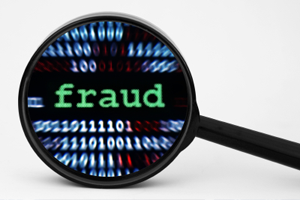The Evolution Of Online Fraud Prevention
 Around 1994, when I operated a small mail order catalog business, it was very difficult to obtain “merchant status,” or approval to accept Visa, MasterCard, Discover, and American Express cards. It was easier if you had a storefront, but payment processors made mail order businesses jump through more hoops.
Around 1994, when I operated a small mail order catalog business, it was very difficult to obtain “merchant status,” or approval to accept Visa, MasterCard, Discover, and American Express cards. It was easier if you had a storefront, but payment processors made mail order businesses jump through more hoops.
Their main concern was that companies could set up shop, accept tons of credit card charges, and then vanish, leaving the banks short. Mail order fraud was also big. A stolen credit card could be used to place orders over the phone, and when the fraudulent charges were discovered, merchants would suffer from chargebacks.
At the time, it wasn’t even necessary to provide a correct expiration date, as long as the card wasn’t already expired. Then credit card companies began verifying billing addresses to authenticate mail orders. Eventually, an additional verification code was added to cards, referred to as a CVC or CVV. We still use these codes today, but they can be fraudulently obtained in a number of ways.
When merchants moved from catalogs to websites, IP addresses were used to track transactions. But bad guys figured out how to spoof them.
Now we have a number of new technologies designed to fight credit card fraud. The most effective and widely implemented is device reputation, an effective online fraud prevention method that helps protect retailers from fraudulent CNP transactions by examining the computer or other device for a history of unwanted behavior, plus any suspicious activity at the time of transaction.
If a customer’s PC, smartphone, or tablet indicates an abnormally high level of risk, the merchant can reject the purchase in advance. iovation, the global leader in device reputation, flagged 35 million online transactions as high-risk in the last year for its clients and will flag 50 million or more by the end of 2011.
Protect yourself from credit card fraud by checking your statements regularly. Set up your own email alerts so that at a minimum, you are notified of any transactions over your specified amount occur on your account. Businesses set up triggers and alerts to protect themselves, shouldn’t you?
Robert Siciliano, personal security and identity theft expert contributor to iovation, discusses credit and debit card fraud on CNBC. Disclosures



























Leave a Reply
Want to join the discussion?Feel free to contribute!